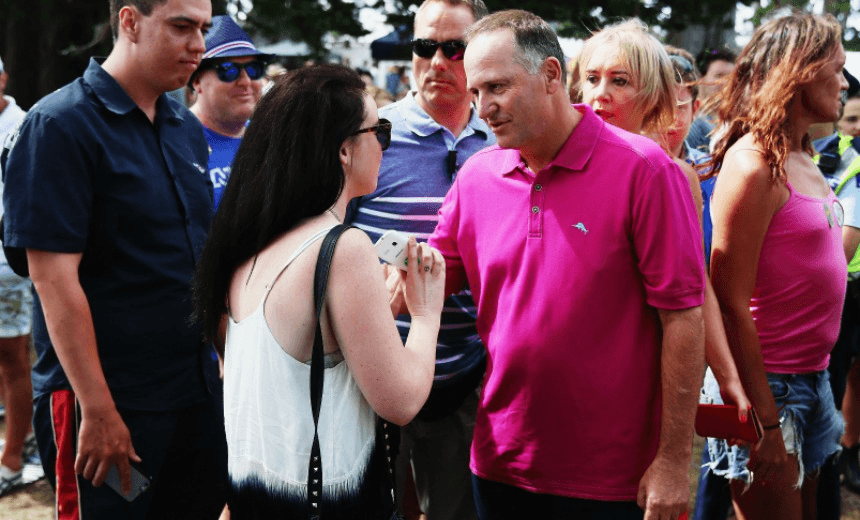When asked if the killing of 50 people at an Orlando gay bar was motivated by homophobia, John Key claimed that he “didn’t know”. Laura Vincent knows.
It’s a fact that 49 people lost their lives in the worst mass shooting in American history at a club named Pulse in Orlando, Florida. It’s a fact that this was a gay bar and it was a Latin-themed night, meaning it was largely full of gay, lesbian, queer, and transgender people of colour. It’s a fact that the killer drove for two hours to get to this specific bar. It’s a fact that when he entered the room, one in three people there would be wounded or killed. It’s a fact that the killer had been profiled by the FBI twice previously and had aligned himself with Islamic extremist group ISIS.
This was blatantly a homophobic attack, a hate crime motivated by a deep fear and distrust of LGBTQ people. To erase this element of the tragedy and simply define it as a mass shooting is to undermine those who died, those who survived, their loved ones, and everyone everywhere who identifies as part of the LGBTQ spectrum.
It was this word, undermined, which stuck with me this morning when I read New Zealand Prime Minister John Key’s words in defense of his refusal to acknowledge the homophobic nature of this event. He said “All the info I’m getting is second-hand, so I just don’t know.”
I admit, when it comes to matters of equality and LGBTQ affairs, John Key is not the first person I turn to for a hot take. It almost feels like there’s two Prime Ministers when it comes to LGBTQ issues. This is the person who used the word “gay” to derisively describe a t-shirt live on the radio, but on the other hand, marriage equality did pass during his time in office.
That moment’s significance feels entirely absent from his statement. He continued: “it’s a fair assumption that, that was one of the driving factors, or whether he was trying to make a statement for ISIS or he was just a very sickened, deranged person, I don’t know.”
Who are you trying to not offend here, John? What is your reason for dancing around it and essentially saying nothing whatsoever? Why not just call it what it is – a homophobic hate crime – and express your sorrow, support, and emphatically condemn the values displayed by the killer?
With this odd sweeping away of the brutal cause of these deaths, it sends a message that being gay is something we shouldn’t talk about. That the very real dangers faced by LGBTQ people are something we can’t acknowledge. Reading those words actively feels like someone is talking to you but refusing to make eye contact. Writing it off as the act of a “sickened, deranged person” allows you to feel better about yourself, because you don’t want to think that actually all it takes is some extreme views and access to weapons of some kind for this kind of harm to happen.
I’ve been followed down the street in broad daylight and shouted at for holding hands with another woman. I’ve had friends beaten up in the street at night for being visibly gay. I think of the lesbian couple from Mangawhai whose house was graffitied with slurs and burned down in 2011. None of these were simply random attacks from “sickened, deranged people”. They were fuelled by homophobia. They were done by horrible people. And that is what life can be like sometimes for us. Please don’t pretend it’s not.
The attack in Orlando was a catalyst for a very close friend of mine to come out to a wider audience on Facebook. She spoke of how she’d previously kept her sexuality largely secret, because of fear that people wouldn’t want to know: a ‘what you do in your own home is your business’ kind of attitude. Her words stuck with me though: “Maybe you should care what people do in their private lives. Instead of asserting you don’t care, actively stand up for and support LGBTQ people. Help ensure that they feel free, and safe, to be those selves in their public lives if they choose to.”
John Key, maybe you do care. Yet your response seems like a throwaway statement – just one in a long series of things you have to give comment on every single day. For us though, it’s not. We’re listening. We feel undermined.
You say you “just don’t know”. Well, we know.
